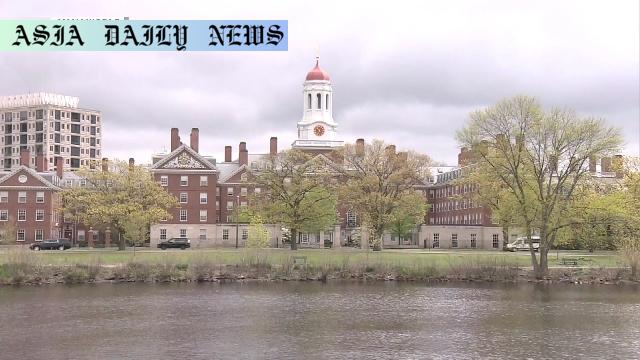Harvard files a lawsuit against the Trump administration for imposing restrictions on international students, calling it unfair and unlawful.
- Harvard filed a lawsuit against the Trump administration over international student restrictions.
- The court issued a temporary restraining order preventing immediate enforcement.
- Harvard argues the measures threaten academic independence and student welfare.
- This decision follows earlier tensions over federal grants and accusations against the university.

The Background of the Controversy
The ongoing tension between the Trump administration and top academic institutions like Harvard University reached a new height recently when the federal government announced restrictions targeting international students. Specifically, the Department of Homeland Security unveiled a rule barring the enrollment of international students at Harvard, citing reasons that range from accusations of fostering antisemitism to enabling violence on campus.
However, Harvard University swiftly responded, deeming these allegations and the consequent measures as ‘unlawful.’ Filing a lawsuit on grounds of retaliatory, arbitrary, and capricious actions, the university highlighted how these restrictions undermined its autonomy and academic integrity. Harvard President Alan Garber spoke publicly against the administration’s actions, assuring students and scholars that the institution remains committed to their success.
Court Intervention and Temporary Relief
In a critical development, on Friday, a US District Court issued a temporary restraining order, effectively halting the Trump administration’s move. The court emphasized the ‘immediate and irreparable injury’ that Harvard could face if the regulations were enforced without proper hearings.
This decision stands as a testament to the independence of the judiciary in safeguarding rights and maintaining checks and balances on executive actions. Furthermore, it sends a strong signal to stakeholders in education about how legal avenues remain an option in countering policies deemed harmful or unfair.
Implications for International Students
More than 15,000 international students call Harvard home. Measures like these not only impact the lives of students, often resulting in uncertainty and confusion, but also place institutions like Harvard in a difficult position. Academic freedom comes under threat, and legal status for many students may hang by a thread.
For universities, the decision to stand firm against such policies reflects a broader commitment to fostering diversity and inclusion. Harvard’s argument that the administration’s act was retaliatory also highlights the importance of preserving intellectual independence amidst political turmoil.
Previous Legal Battles
This is not the first instance of friction between Harvard and the Trump administration. Notably, the university had earlier filed a lawsuit over the partial freezing of federal grants, sparking debates about the alignment of federal funding and academic freedom. These ongoing legal skirmishes underscore a larger ideological divide between the administration’s approach and the principles championed by academic institutions like Harvard.
The Awaiting Consequences
While the court’s intervention provides a momentary respite, the long-term consequences of this legal battle could shape the future of higher education policies in the United States. Given the increasing tensions between politics and academia, this case could become a critical turning point, influencing policymakers, students, and universities alike.



Commentary
The Role of Judicial Decisions in Safeguarding Academic Freedom
The recent court intervention in the conflict between Harvard University and the Trump administration reminds us of the critical role an independent judiciary plays in upholding fairness and justice. Harvard’s proactive approach in legally contesting policies deemed prejudicial sets a precedent for other institutions to follow.
The Bigger Picture on International Students
Beyond Harvard, the issue of international student enrollment touches upon broader conversations about immigration, diversity, and inclusivity. For years, American universities have attracted global talent, fostering innovation and dialogue. Unjust restrictions not only hinder academic progress but also tarnish the image of the country as a hub of knowledge and opportunity.
A Dismissal of Intellectual Independence?
Accusations such as fostering violence or antisemitism place universities in a precarious position, opening them to scrutiny and pressure. Harvard’s response signals that premier academic institutions are unwilling to accept such allegations lightly, ensuring that intellectual independence remains intact even in turbulent times.
Hope for a Collaborative Future
As legal challenges persist, it is imperative to remember that the goal should always be collaboration rather than conflict. Policymakers, universities, and other stakeholders must come together to foster an environment of mutual respect that values academic rigor, inclusion, and freedom.